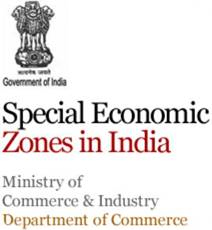 New Delhi: The Indian Government is examining the possibility of restoring tax benefits for a handful of manufacturing special economic zones, while continuing to tax the rest to minimize revenue losses, reports BusinessLine.
New Delhi: The Indian Government is examining the possibility of restoring tax benefits for a handful of manufacturing special economic zones, while continuing to tax the rest to minimize revenue losses, reports BusinessLine.
“As exports from manufacturing SEZs, excluding gems & jewellery and petroleum, account for just 10 per cent of total SEZ exports, exempting them from taxes would not cost the exchequer heavily,” a Commerce Ministry official said.
The idea behind rolling back taxes imposed on manufacturing SEZs is to boost production activity in the country, which is in line with the BJP Government’s economic priorities, the official added.
The Finance Ministry, under the previous UPA regime, had imposed Minimum Alternate Tax (MAT) of 18.5 per cent and Dividend Distribution Tax (DDT) of 15 per cent on SEZ developers and units two years back. This brought to an end the tax holiday promised to the zones for a 10-15 year period in the SEZ policy.
The Commerce Ministry has been trying to convince the Finance Ministry to restore the tax benefits as it affected profitability of units and resulted in a sharp drop in flow of investments into the zones. It stepped up pressure when the BJP Government came to power earlier this year. “The Finance Ministry is reluctant to remove the taxes as it could cause revenue losses of up to ₹13,000 crore a year,” the official said.
A compromise solution suggested by the Commerce Ministry is restoring tax benefits to manufacturing SEZs, not including gems & jewellery and petroleum products, as these account for only ₹50,000 crore of exports every year.
“As profit margins of manufacturing exports is also lower than say IT SEZs, these would account for revenue losses of not more than ₹400 crore a year,” the official explained.
SEZs in the IT, petroleum products and gems & jewellery sectors, on the other hand, account for almost 90 per cent of ₹5 lakh crore worth of exports from all SEZs. Continuing the current tax dispensation for them would ensure minimal tax loss for the Government.
“However, our first preference remains granting tax exemption to all SEZs, irrespective of sectors,” the official said.
Difficult to invest: Out of 566 SEZs approved by the Government, only 185 SEZs have come into operation. “This gap is caused due to the abrupt introduction of MAT and DDT on SEZs from 2012. It has become difficult for the developers to bring in investments in such a situation,” said PC Nambiar from the Export Promotion Council for EoUs and SEZs.



